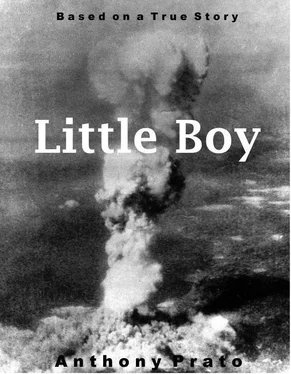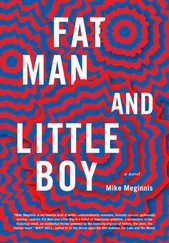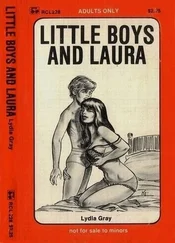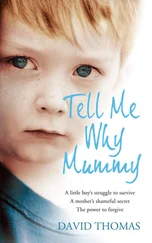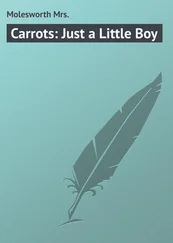Christopher Prato - Little Boy or, Enola Gay
Здесь есть возможность читать онлайн «Christopher Prato - Little Boy or, Enola Gay» весь текст электронной книги совершенно бесплатно (целиком полную версию без сокращений). В некоторых случаях можно слушать аудио, скачать через торрент в формате fb2 и присутствует краткое содержание. Год выпуска: 2013, Издательство: Smashwords, Жанр: Современная проза, на английском языке. Описание произведения, (предисловие) а так же отзывы посетителей доступны на портале библиотеки ЛибКат.
- Название:Little Boy or, Enola Gay
- Автор:
- Издательство:Smashwords
- Жанр:
- Год:2013
- ISBN:нет данных
- Рейтинг книги:3 / 5. Голосов: 2
-
Избранное:Добавить в избранное
- Отзывы:
-
Ваша оценка:
- 60
- 1
- 2
- 3
- 4
- 5
Little Boy or, Enola Gay: краткое содержание, описание и аннотация
Предлагаем к чтению аннотацию, описание, краткое содержание или предисловие (зависит от того, что написал сам автор книги «Little Boy or, Enola Gay»). Если вы не нашли необходимую информацию о книге — напишите в комментариях, мы постараемся отыскать её.
Little Boy or, Enola Gay — читать онлайн бесплатно полную книгу (весь текст) целиком
Ниже представлен текст книги, разбитый по страницам. Система сохранения места последней прочитанной страницы, позволяет с удобством читать онлайн бесплатно книгу «Little Boy or, Enola Gay», без необходимости каждый раз заново искать на чём Вы остановились. Поставьте закладку, и сможете в любой момент перейти на страницу, на которой закончили чтение.
Интервал:
Закладка:
And then there was Enola Gay.
Enola Gay was a Boeing B-29 Superfortress. It’s WEFT: gigantic 141-foot permanent wings; four propellered, 2,200-horsepower engines; a cigar-shaped fuselage which was tapered at the rear; a thick, high-mounted, immobile tail. With Curtiss Electric four-blade sixteen-foot, seven inch propellers, it could fly up to 360 miles per hour at 25,000 feet.
With an eleven-man crew, Enola Gay departed Tinian Island in the Marianas on August 6, 1945 at 2:45 a.m. and arrived back twelve hours and thirteen minutes later. During those thirteen hours, it released an atomic bomb over Hiroshima, Japan, at 8:15 a. m. local time.
Atomic bombs are amazing. They depend upon the release of energy in a nuclear reaction known as fission, or the splitting of atomic nuclei. With a release of energy a million times greater than an equal weight of chemical high-explosives, they’re invention is the most impressive and disturbing application of science in human history. As the atom splits, it creates neutrons. Neutrons striking the heavy element uranium cause it to fission, producing fragments which have less mass than the original atom. Allowed to progress unchecked, a chain reaction releases energy rapidly and with explosive force.
And it did.
It’s official number was 44-86292. But the book said that the pilot, Lieutenant Colonel Paul Tibbets, named the plane Enola Gay after his mother. The atomic bomb it released had an explosive capacity equivalent to twenty-thousand tons of TNT. The bomb’s code-name was “Little Boy.”
Its direct hit on Hiroshima killed seventy-eight thousand innocent citizens almost immediately. Another seventy-thousand were injured, and about ten-thousand were never discovered. But it wasn’t just the number of people who died, but the way they died. Thousands of people were instantly carbonized in a blast thousands of times hotter than the sun; further from the epicenter, birds ignited in mid-flight, eyeballs popped, and internal organs were sucked from bodies of victims.
The same scenario took place, and tens of thousands more were killed and wounded, by the second atomic bomb dropped on Nagasaki, three days later. Unlike Little Boy, the second plane didn’t hit its target directly. But it still caused thousands of deaths. Combined, they facilitated the end of World War II.
The book went on to state that the war might not have carried on too much longer even had President Truman not ordered the atomic bombing of those two Japanese cities. However, in the interim, hundreds of thousands of American soldiers might have died in an inevitable land invasion on Japan. A few years after the war, President Eisenhower said the bomb was unnecessary, that Japan was about to surrender anyway. Imagine if that were true: The U. S. killed hundreds of thousands of innocent souls for naught; just as punishment, I suppose, for the stuff that the Japanese government did during the war.
History, unfortunately, has a cruel way of only telling what did happen, and not what might have happened. Did Little Boy and its counterpart three days later kill hundreds of thousands to save hundreds of thousands? We will never know.
The mass destruction caused by Little Boy fascinated me, as did the entire story behind it. Among the many vivid details of these explosive events, most striking was what Captain Robert Lewis, the co-pilot, wrote in his journal that morning: “As the bomb exploded, we saw the entire city disappear. I wrote in my log, ‘My God, what have we done?’”
My God, what have we done?
My mind now flips between the corresponding events of that mission—the dropping of the bomb Little Boy in an effort to win a war, and Robert Lewis’s departing words: “My God, what have we done?” I couldn’t help but feel connected to him, this pilot that was not much older than me way back then. I repeated those words—“My God, what have we done?”—silently and intently to myself alone in my room late one night. My God, what have we done… My God, what have we done?
I began thinking: My God, what have I done?
I wanted to go back in time, to the morning of August 6, 1945. If I could, I would’ve ripped the pencil from Robert Lewis’s hand and prevented him from asking that question. He had no right to do so. He was just following orders. He was only doing his job.
That’s my question! I thought. I AM LITTLE BOY!
That’s all I thought about then, that’s all I think about now— I am the real Enola Gay. I am Little Boy. I could’ve been a man. I could’ve learned from my mistakes as they sprang up—I made them each and every goddamn day—and each one could’ve become a valuable lesson rather than a fire that shortened an ever-shrinking fuse. I could’ve extinguished the fire before it scorched my face and Maria’s, before it scalded our love into a state of disrepair. Mine was a war against myself that I’d never won. It still is.
Few thoughts dominate my condition as do those of that World War II military plane and its connection to my existence. The story of Little Boy and the Enola Gay has sparked an unconscious obsession to study and contemplate and predict what a loving and remarkable relationship Maria and I were destined to have were it not for my inhuman treatment of her.
These are the thoughts which shall hold me locked in place for the rest of my life. I will no longer think about her past—only what I am, and what we could have been.
Chapter 20
My Last Cigarette
As you know, I never did get into the Air Force Academy.
To this day, I don’t know whether or not Maria’s father canceled his letter of recommendation for me. Perhaps, upon seeing the tears on his daughter’s face, Mr. Della Verita called up Colorado Springs and told them what scum I was. Perhaps not. I’ll never know.
The summer after senior year, instead of packing for the Academy, I got back my old deli job at Key Food and enrolled in Hunter College in Manhattan. But I never did find myself. And I didn’t bother to reapply to the Academy, either. Instead, traveling on the subway each and every goddamn day into the city, disgusted by the yuppie scum and winos surrounding me, I imagined myself shooting through the skies in a B-1 Bomber. Cornering the subway tunnels, screeching to a halt at each stop, more often than not my eyes swelled with tears with the thought that my flying career was over—and yet it had never begun. I took the same train that Maria and I took when we went to Central Park, the R train. Often, I search for her on the train, but I never find her.
I didn’t make many friends in college. I strolled around the hallways with my head down, never bothering to talk to anybody, continuously replaying the events of that single year Maria and I had spent together.
One person I did meet was Megan. Like I said before, most of the time we didn’t hang out together, but we studied with each other on occasion.
Megan impressed me. Not so much her looks but her personality. She was a sweet kid, kind of nerdy. When I passed by her, with my face anchored to the pavement, she’d tap me on the shoulder and greet me with a cute, angelic smile on her face. She didn’t seem to mind that other people thought she was weird for speaking to me. I know that they thought that, too. Megan used to say, jokingly, that I was the Invisible Man, but she had a special ability to see me. I always insisted that she was delusional, and she responded by smiling.
For one reason or another, Megan was very friendly toward me. In the library, when I went off to make a photocopy or check-out a book, Megan would leave cute little notes in my bag that said “hi ” or “how are you? ” It was weird behavior, if you ask me. But I suppose it was nice to be noticed.
Читать дальшеИнтервал:
Закладка:
Похожие книги на «Little Boy or, Enola Gay»
Представляем Вашему вниманию похожие книги на «Little Boy or, Enola Gay» списком для выбора. Мы отобрали схожую по названию и смыслу литературу в надежде предоставить читателям больше вариантов отыскать новые, интересные, ещё непрочитанные произведения.
Обсуждение, отзывы о книге «Little Boy or, Enola Gay» и просто собственные мнения читателей. Оставьте ваши комментарии, напишите, что Вы думаете о произведении, его смысле или главных героях. Укажите что конкретно понравилось, а что нет, и почему Вы так считаете.
